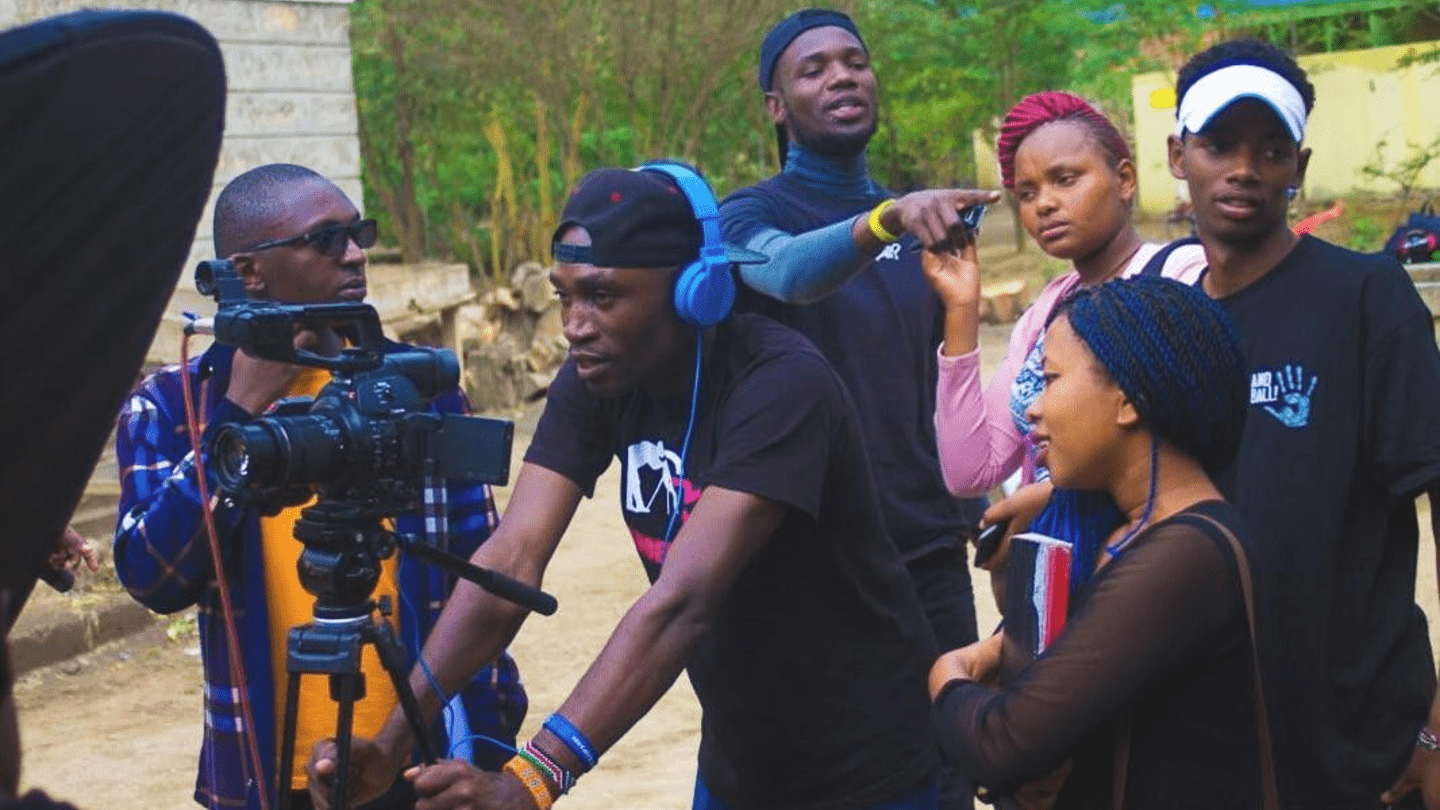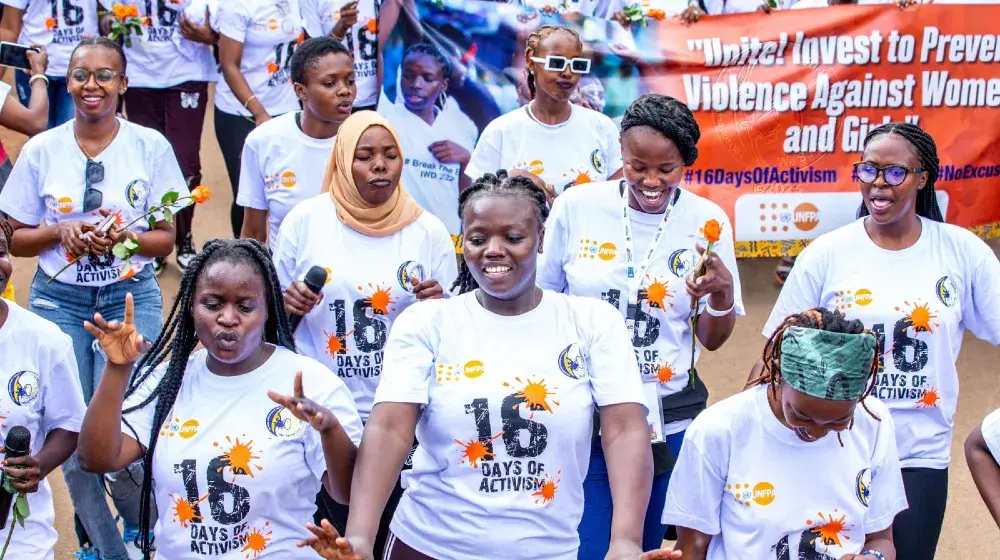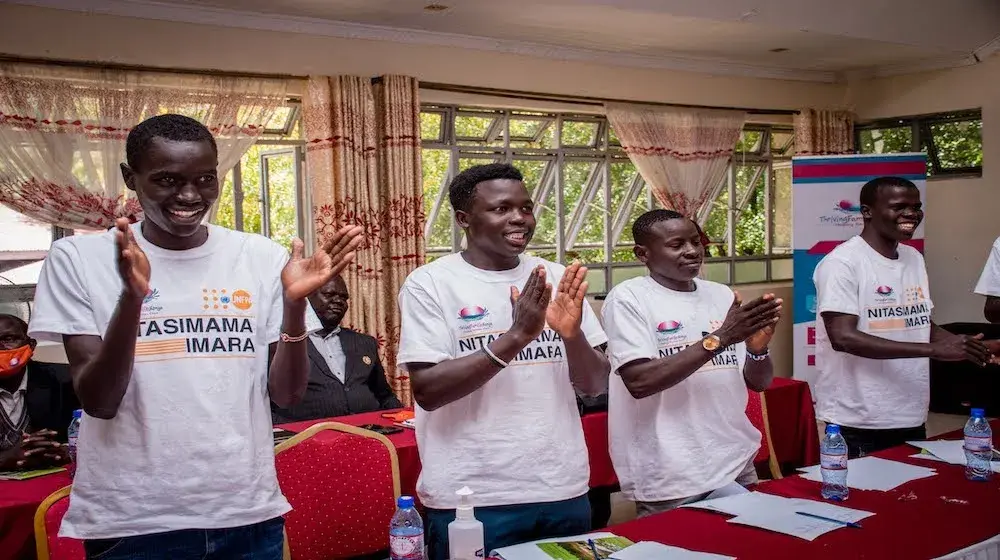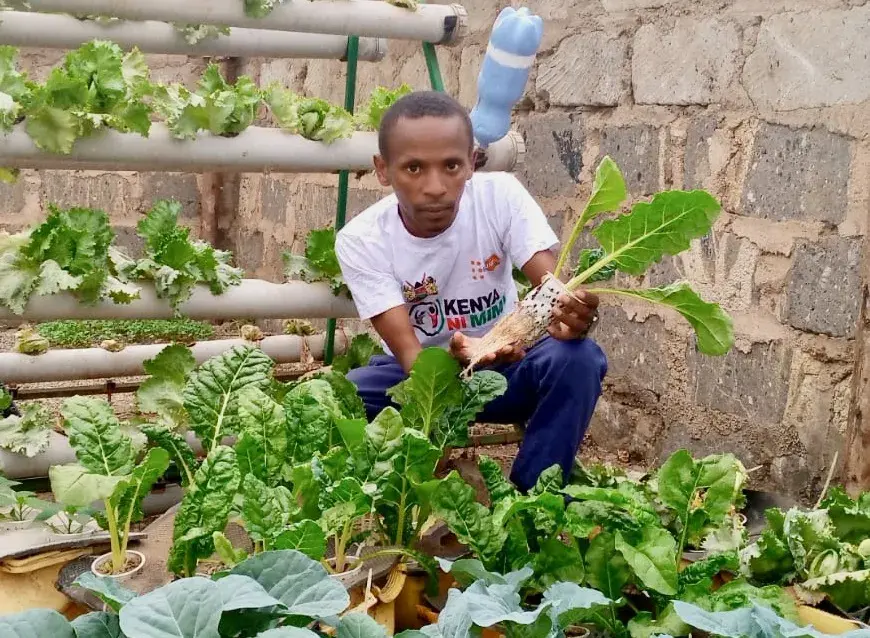In early 2014, Stephen Maina and his wife were excited and eagerly anticipating the birth of their first child. However, 3 weeks before the due date, his wife experienced a sudden onset of a full-blown case of preeclampsia which necessitated her early delivery. As a young and inexperienced father, Stephen set out to find out more information on the condition and it’s implications on the health of his wife and baby. “Most of the information I found was too technical, which made it difficult to understand,” says Stephen. The situation caused him to reflect on how little he knew about sexual and reproductive health.
“I started to reflect on the sources of information my friends and I had relied on for information on sex, and realized that these were contemporary teen and young adult magazines whose content fell short of providing a real education on sexual and reproductive health and rights,” he says.
As Stephen navigated the emotional turmoil of his daughter's early struggles, he was struck by the harsh realities many young people face. More than 59 million Kenyans—or 59% of the population—are below the age of 24. Yet, many of these young people lack access to accurate and engaging information about sexual and reproductive health and rights. This knowledge gap profoundly impacts their well-being and health outcomes.
This realization fueled Stephen’s determination to create accessible information for the youth, and turned to his expertise as a computer scientist to develop a content platform targeted at young people. This resolve led to the creation of Imara TV, a youth-centered digital platform that utilizes entertaining films to educate the public on critical issues including Sexual and Reproductive Health and Rights(SRHR).
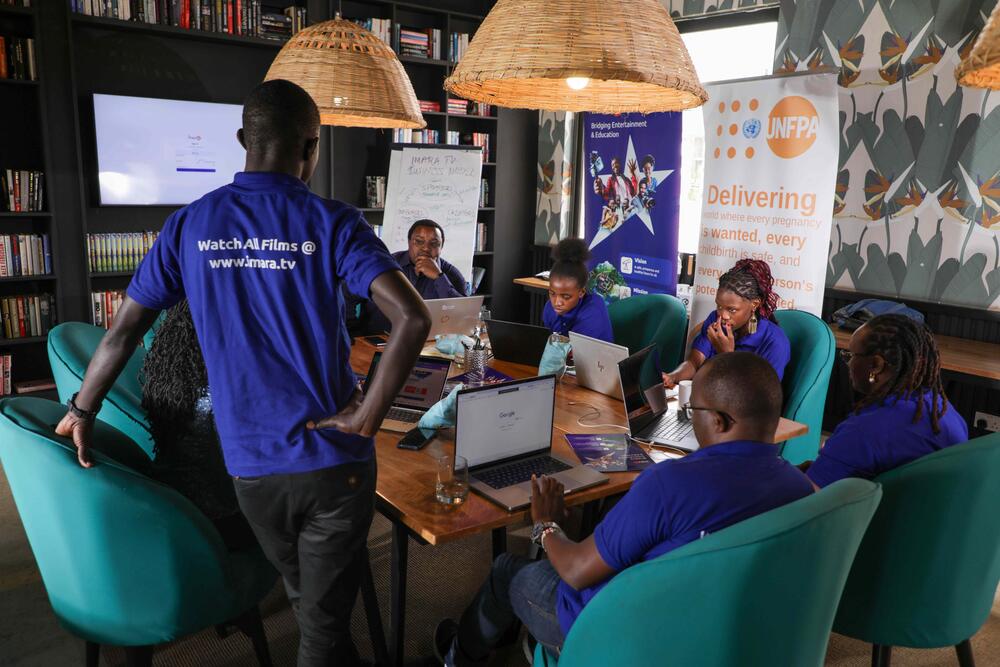
Stephen successfully pitched his innovation in 2016 at the I.AM iAccelerator, an innovation accelerator aimed at fostering creative solutions to enhance access to youth-friendly SRH information and services. The accelerator was launched by UNFPA in Kenya in collaboration with the Ministry of Health, UK AID, and Nailab - a technology-driven business incubator. The Innovation Accelerator was a mentorship-driven acceleration program supporting young entrepreneurs with seed funding, training, and skills development developed to generate innovative solutions in response to challenges related to sexual and reproductive health, sexuality education, and other issues in line with UNFPA's mandate.
Stephen and his team developed a pilot application from the initial seed funding of $10,000, and engaged budding talent to create films based on the curriculum provided by UNFPA from the hackathon. Today, Imara TV has produced over 250 educational films on vital topics such as gender-based violence, female genital mutilation, teen pregnancy, HIV, and menstrual health. These videos are freely accessible and easily shareable, leveraging platforms like TikTok, Instagram, and Facebook to connect with youth using humor and creativity. As a result, Imara TV has reached more than 30 million viewers both online and offline. The platform not only disseminates vital SRH information but also fosters critical conversations around these topics both online and offline.
Imara TV also stands out as a social enterprise, having created 3,700 part-time and 8 full-time jobs for young people, including storytellers, actors, producers, musicians, and digital content creators. Additionally, the platform has generated 16 million Kenya Shillings ($123,000) over the last five years through advertisements and sponsorships from various organizations. 90% of the revenue generated by Imara TV goes directly to these creators, empowering them to improve their livelihoods and pursue their dreams.
Imara TV aims to entertain, educate, and promote positive social change through its diverse programming. By featuring films like 'First Timer,' the platform helps young girls navigate their first period. Additionally, films such as 'The Teacher's Bait' and 'My Mother's Husband' focus on educating viewers on recognizing sexual predators. Imara TV addresses critical issues like female genital mutilation (FGM) in films such as 'Please Don't Cut,' additionally serving as an essential resource for parents and educators seeking to inform youth about important health matters.
With a focus on sustainability, Imara TV recently launched its 2030 business strategy, which includes a cyclic economy model. “Our new 2030 business strategy is not just about sustainability; it's about creating a cyclic economy that empowers our content creators while delivering valuable information to our audience,” says Stephen Maina, one of the Imara TV co-founders. “By connecting sponsors directly with creators, we ensure that everyone benefits—creators earn for their work, sponsors reach engaged consumers, and our viewers receive high-quality educational content tailored to their needs,"
"UNFPA is dedicated to empowering Kenya’s youth by providing them with the resources and platforms necessary for accessing essential sexual and reproductive health information. Innovations such as Imara TV are designed by the youth, for the youth, and aim to foster innovation and creativity, ensuring that the voices of youth are heard and their needs are met," says Kigen Korir, Sexual and Reproductive Health and Youth Advisor at UNFPA Kenya.

